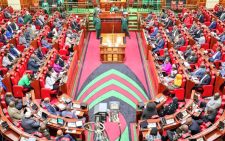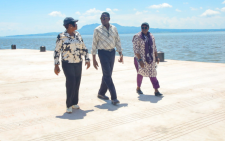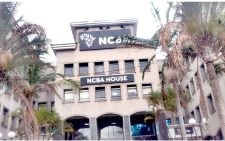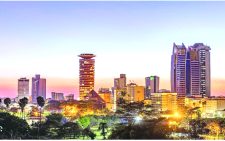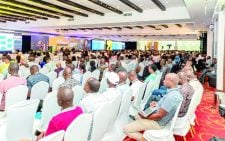Big headache for estate nightclubs as festivities begin
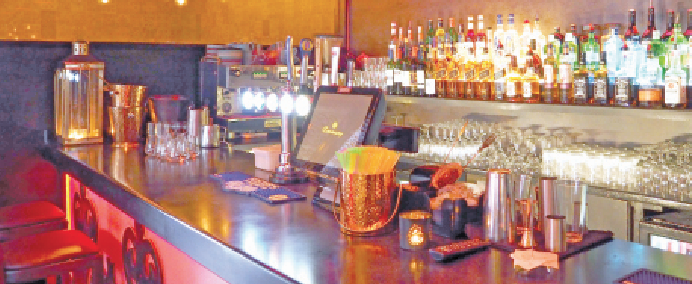
With the festive season kicking in, the entertainment industry is apprehensive on the current ban on licences of bars, restaurants and nightclubs in residential areas in Nairobi, with the quagmire seemingly looking far from getting an amicable resolve.
As the timeline given by the court to the Nairobi County government and the Pubs and Restaurants Association of Kenya (Perak) to hold joint talks within 120 days and develop regulatory or administrative guidelines on noise pollution, the latter has been hard at work in an effort to save the businesses and thousands of jobs at stake.
The Nairobi County Government has issued 12,000 licenses for bars, which is 30 per cent of the country’s total. Out of the number, 400 are nightclubs, which most of them normally enlist the services of three deejays. Within the creative industry, those directly affected by the ban include photographers, mixologists, karaoke hosts, bouncers and DJs.
“Perak estimates that it will lay off 50 per cent of its full-time workforce in nightclubs due to the ban on nightclub licenses in Nairobi. It further estimates that 100 per cent of the temporary employees will not be required due to the reduction in operations within the nightclubs,” says Perak national chairman Michael Muthami.
Lost livelihoods
Association of Bouncers of Kenya chairperson David Odhiambo says out of the 13,000 staff whom have been laid off from clubs, about 3,000 are bouncers.
“Apparently we have forgotten that the Kenyan entertainment industry employed great effort to recover from the Covid-19 pandemic, and now the investors in the sector are again being subjected to misery without enough notice. The cancelled licenses for all nightclubs operating in residential areas in the capital has affected our members and resulted in job losses, which has indirectly affected others such as the families of the affected individuals,” he laments.
Last week, Perak met the Sectorial Committee on Culture and Community Services with an aim of gettting the process move in a positive trajectory. The public uproar has been unrelenting, and Nairobi Governor Johnson Sakaja has stamped his authority, buoyed by the fact that President William Ruto has his back on the issue.
Among the key agendas during this year’s Perak Annual General Meeting was the debate on the relocation of nightclubs to zoned areas, a proposal that ruffled some feathers the wrong way.
From the meeting, the members complained that many of the bars affected by the ban were compliant, so, faulting it as discriminatory.
“We respect and appreciate the rights of all Kenyans to live in areas free of noise pollution. This commitment is demonstrated by the fact that bar owners have been in talks with the government and the resident associations since the complaints were raised against nightclubs near residential areas. We will continue to work with all stakeholders to ensure compliance with the law,” Muthami told the press after the meeting.
The association’s former chairman Patrick Mwai said, “One of the lead causes if this stalemate is because we have an overlapping role within two main bodies. The County Government and the National Environment Management Authority (Nema). When dealing with most licenses, we deal with the former, which is represented by the Nairobi County Alcohol Licensing Board. In its membership, there is no place for Nema, and this has brought us here.”
While solutions have been floated from every side, the bottomline remains on compliance, especially within the legal framework and apparatus.
“We have seen some clubs going above the allowed 35 decibels, with some going up to 80 decibels. Most of the clubs have to comply with actions on reductions on noise and vibration, soundproofing of the establishment and submitting Nema licenses with a proof of public participation from the immediate neighbours,” said Nema inspector Christine Kivuva.
Compliance headache
Other counties across the country have also been facing the music when it comes to compliance, including Mombasa.
“Mombasa is the hub of entertainment in Kenya. During weekends and holidays, we need to have a conversation because some places such as beach clubs, it’s hard to talk about sound proofing unlike other clubs in the residential areas,” says Perak county representative Patricia Njeri.
DJ Saye who plays at both Tapas Cielo and 10th Street in Mombasa opines that there is need for consultative meetings for event organisers, the county government and Nema, as most parties in this festive season are at risks of cancellations.
“We have been recovering from the Covid-19 pandemic and I don’t know why we are back in this situation. I am hopeful that level-headed conversations with consideration of guidelines that won’t hurt any stakeholder will be achieved,” she says.
